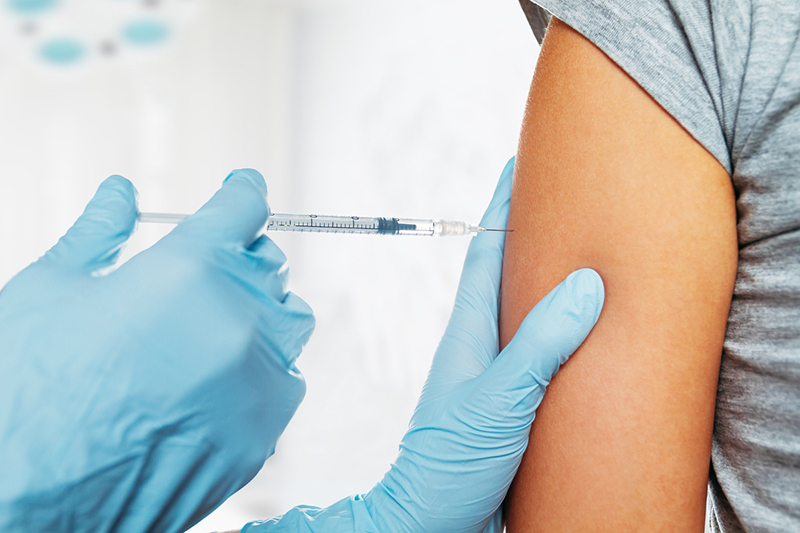
No serious adverse events were reported by 180 breastfeeding women receiving either the Pfizer or Moderna vaccine, either among themselves or in their infants, according to a study funded by the National Institutes of Health. For the mothers, adverse events included muscle and body aches, fever and vomiting, pain, redness, swelling, or itching at the injection site.
Few adverse events were reported for the children and included irritability, poor sleep, and drowsiness.
Similar proportions of women reported side effects after the first dose of either vaccine, while women were more likely to report side effects after the second dose of the Moderna vaccine than after the second dose of the Pfizer vaccine. Women were more likely to report a reduction in milk supply after the second dose of the Moderna vaccine than after the second dose of the Pfizer vaccine. However, all women reported a return to normal milk volume within 72 hours.
The authors concluded that the study data was reassuring regarding the safety of vaccine use in breastfeeding women and their children.
The study was conducted by Christina Chambers, Ph.D., and colleagues at the University of California, San Diego. It appears in Breastfeeding Medicine.
Background
The U.S. Food and Drug Administration granted emergency use authorization for the Pfizer-BioNTechBNT162b2 and Moderna messenger RNA (mRNA) COVID-19 vaccines after clinical trials found them effective for preventing SARS-CoV-2 infection and severe disease. Although the American College of Obstetrics and Gynecology and the Society for Maternal and Fetal Medicine have recommended these vaccines be made available to breastfeeding women, this population was excluded from the initial trials.
One small study found that 60% of women who received these vaccines experienced side effects but did not report data on their infants or milk supply. Another small study in Israel found that women receiving the vaccines experienced proportions of side effects similar to those seen in the first study. Women in the Israeli study reported no serious adverse events in their infants but did report that a few infants had fevers and upper respiratory symptoms.
For the current study, researchers sought to evaluate potential adverse effects in a large group of breastfeeding women and their infants. They collected information from 180 breastfeeding women on symptoms and their children’s outcomes for seven days after each dose of vaccine.
Results
A total of 128 women (71%) received both doses of the Pfizer vaccine and 52 (29%) received both doses of the Moderna vaccine. After the first dose, similar proportions of the women reported experiencing any symptoms: over 89% of the Pfizer group and over 98% of the Moderna group. After the second dose, women receiving the Moderna vaccine were more likely than those receiving the Pfizer vaccine to report systemic symptoms, such as chills (75% vs. about 48%), muscle and body aches (almost 84% vs. almost62%) or fever (about 47% vs. over 24%). Women in the Moderna group also were more likely to report symptoms at the injection site, such as pain (98% vs. almost 88%), redness (about 32% vs. almost 3%) or itching (over 17% vs. over 4%).
A small, statistically insignificant proportion of women reported a reduction in milk supply after the first dose (over 11% of the Moderna group vs. over 7% of the Pfizer group.). A significantly larger proportion of the Moderna group reported a reduction in milk volume after the second dose (over 24% vs. 8%). In all these cases, however, milk supply returned to normal within 72 hours. The study did not measure milk volume and relied on the women’s reports.
Few adverse events were reported for children with either vaccine or dose. The most common child events following the second dose were irritability (about 10% each for Pfizer and Moderna), poor sleep (over 8% for Moderna vs. almost 8% for Pfizer) and drowsiness (over 6% for Moderna vs. 0% for Pfizer).
Significance
The researchers concluded that the data obtained from their study was reassuring regarding the safety of COVID-19 vaccination for breastfeeding women and their children.
Reference
Bertrand K, et al. Maternal and child outcomes reported by breastfeeding women following messenger RNA COVID-19 vaccination. Breastfeeding Medicine. 2021.

 BACK TO TOP
BACK TO TOP